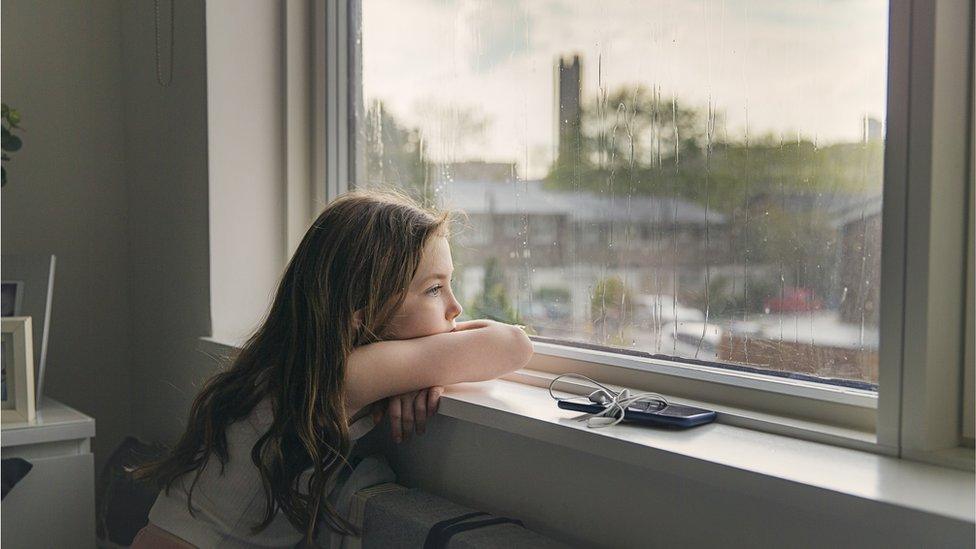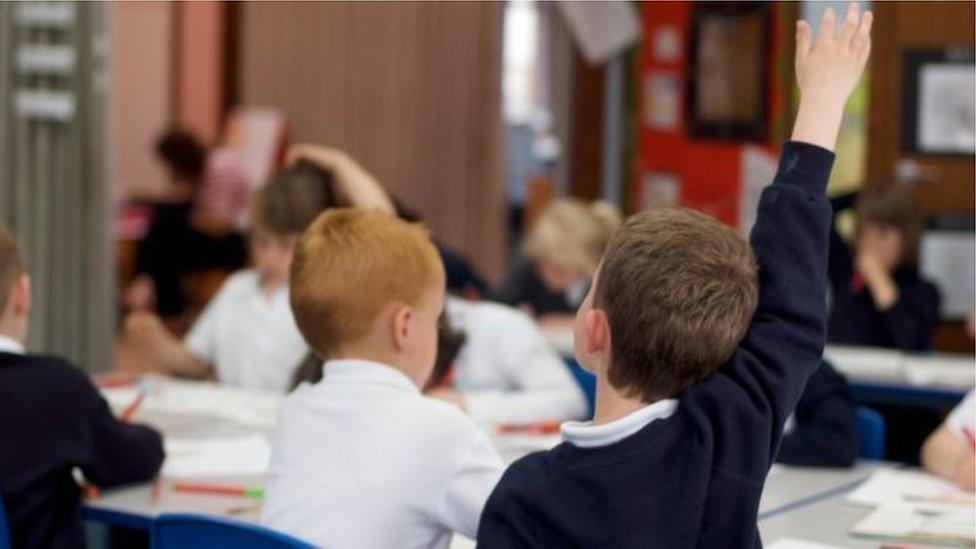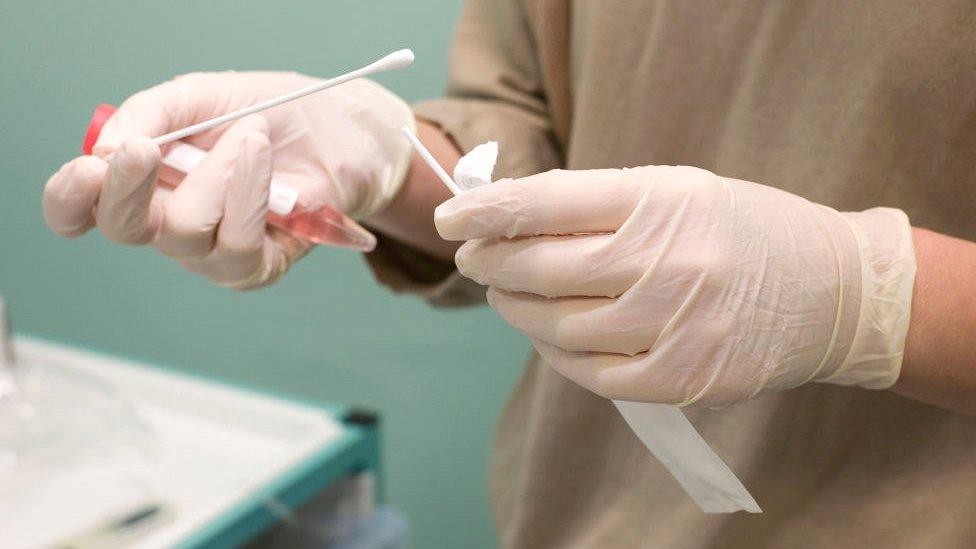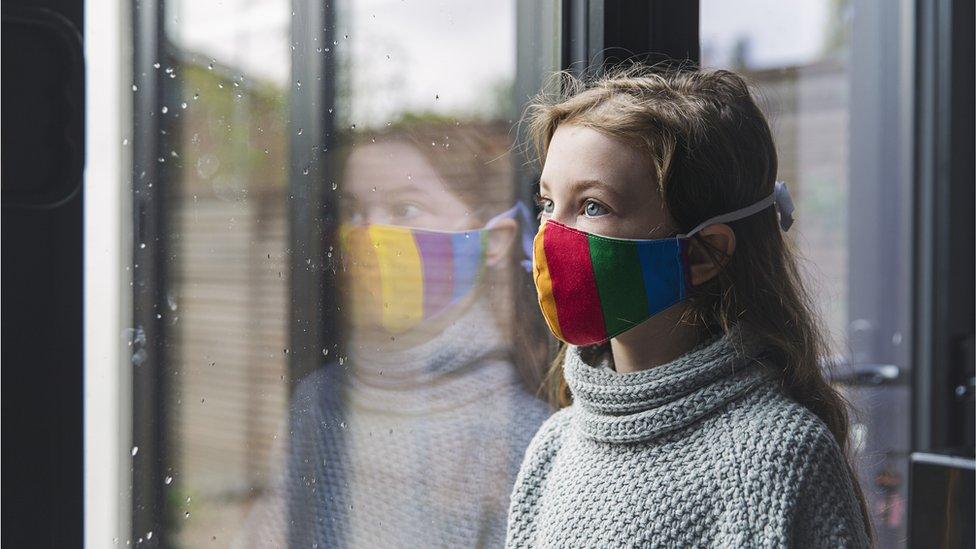Covid-19: Surge in children's issues forecast post-pandemic
- Published

Health professionals expect a "surge" of issues about children's emotional health due to the coronavirus pandemic.
That is just one of the key findings of a wide-ranging report into how services to children and young people have been affected.
The report by experts from Queen's University Belfast (QUB) was carried out for the Commissioner for Children and Young People (NICCY).
It found children had been "severely impacted" by restrictions.
The review of the effect of Covid-19 on the planning and delivery of children's services was carried out by academics from the Centre for Children's Rights at QUB.
It is a companion report to one from the Children's Commissioner reflecting the views of more than 4,000 young people.
The NICCY report found that the pandemic and lockdown restrictions had "a severe impact" on their education, mental and physical health and wellbeing.
Loneliness
The QUB report was based on interviews and focus groups with 38 professionals working with children and young people in areas such as health, education, early years, child protection and youth services.
It said "crucial services" were "put on hold" or made "more difficult for children and young people and their families to access during the pandemic".
In the health sector, professionals expressed concerns about children's mental health.
"There's solid data that shows that when you close schools and close services mental health issues increase in children and young people… young people's loneliness is kind of being neglected," one told the authors.

"There are babies being born to mothers who are mentally ill now as a result of the pandemic," another said.
"Every single adult who's now hitting that threshold for mental illness, the risk of mental illness in their child increases."
The report said that vulnerable children, newcomer children, refugees and asylum seekers were particularly vulnerable to physical and mental health problems.
"Children with disabilities and complex needs, pre-existing and life-limiting conditions, mental health issues, and children with refugee status may have endured the greatest health related impact," it concluded.
"They missed essential therapies, surgeries, respite care and cancelled outpatient appointments to track their illness and rehabilitation."
'Under the radar'
Another professional interviewed by the authors spoke of "a whole generation of invisible children" who had not received the healthcare they needed.
"Another group of children who may have fallen under the radar during the pandemic are adolescents," the report said.
It noted, for example, that some young people had limited access to sexual health advice and treatment.
One health professional spoke of "increases in gonorrhoea, chlamydia among young women, gonorrhoea among young men, but also syphilis has gone up 32%".

In schools, teachers had "additional and significant responsibilities".
"This ranged from the extra time spent preparing materials to late-night phone calls and emails with parents to find out why some children are not engaging with remote learning," the report said.
When many pupils were educated remotely teachers were "less able to effectively monitor children who may be perceived as vulnerable for a range of reasons or to keep an eye on safeguarding issues".
Families of children with disabilities were also said to have struggled.
"During the first lockdown when they closed off all services, including schools, mental health services, health services, parents were calling up, they were struggling, they were really struggling," a children's worker told the authors.
Significant impact
Some professionals criticised the way the Department of Education had communicated changes to schools.
"If there's anything that is vaguely controversial it comes out on Friday afternoon after schools are closed," one told the report's authors.
Youth workers said that the abrupt closure of schools, youth clubs and community groups, leisure centres, parks, museums and libraries had left "children and young people with few choices and places where they could spend their free time in a safe and enjoyable way".
"You're now seeing people going 'actually play is', what we've been saying for years, it is one of the most critical activities children engage in," one told the report's authors.
"And the pandemic is showing, through all of the research around mental health and around physical health, it's showing the impact of not having access to this."
"By removing that it actually impacts significantly on children and young people's lives."
Many professionals said, though, that services "improved over time" and that there had been more collaboration between those in different sectors and agencies.
Many also said they had found new ways to deliver services that would benefit children and young people in the future.
But there were still concerns.
"There was concern about what recovery would look like, not just for working arrangements but in terms of increased needs of children and young people, service provision and resourcing," the report concluded.
It also included a number of recommendations based on those from the UN Committee on the Rights of the Child.
- Published26 August 2021
